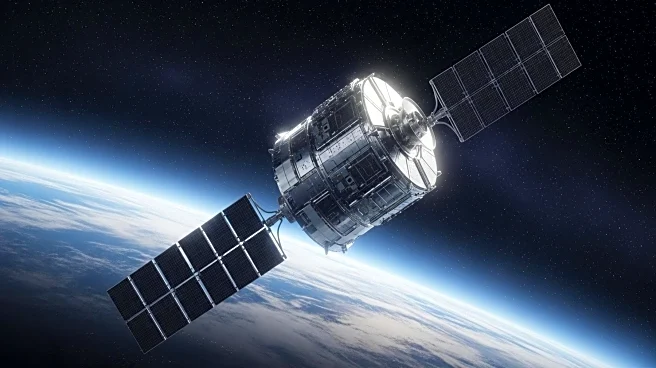What's Happening?
The German Defense Ministry is advancing its efforts to establish space superiority by planning to launch two demonstrator satellites within the next two years. This initiative is part of a broader strategy to develop counterspace capabilities, which are essential for protecting national interests in space. The German Aerospace Center (DLR) is collaborating with companies to build an observer satellite that acts as a shield for other spacecraft, alongside another satellite designed to disrupt potential threats. This development is in response to the growing deployment of space-based technologies by countries like Russia and China, which pose threats to other nations' spacecraft. The German Defense Ministry emphasizes the need for freedom in space to act, likening the new systems to having a 'sword and shield' in space.
Why It's Important?
The move to establish space superiority is crucial for Germany and other Western nations as they face increasing threats from adversaries deploying advanced space technologies. By developing counterspace capabilities, Germany aims to protect its satellites and maintain operational freedom in space. This initiative reflects a broader trend among Western militaries to secure their assets in space, which is becoming an increasingly contested domain. The development of these capabilities could have significant implications for international security and defense strategies, as countries seek to safeguard their interests and prevent potential conflicts in space.
What's Next?
Germany's plan to launch demonstrator satellites is expected to progress over the next two years, with continued collaboration between the German Aerospace Center and private companies. As these satellites are developed and deployed, Germany will likely enhance its counterspace capabilities, potentially influencing other nations to follow suit. The broader implications of this initiative may include increased international cooperation or competition in space technology development, as countries strive to protect their space assets and maintain strategic advantages.
Beyond the Headlines
The development of counterspace capabilities raises ethical and legal questions about the militarization of space and the potential for escalation in space conflicts. As countries invest in technologies that can disrupt or disable satellites, there is a risk of triggering an arms race in space, which could have long-term consequences for global security and stability. Additionally, the deployment of such technologies may necessitate new international agreements or regulations to manage space activities and prevent conflicts.










